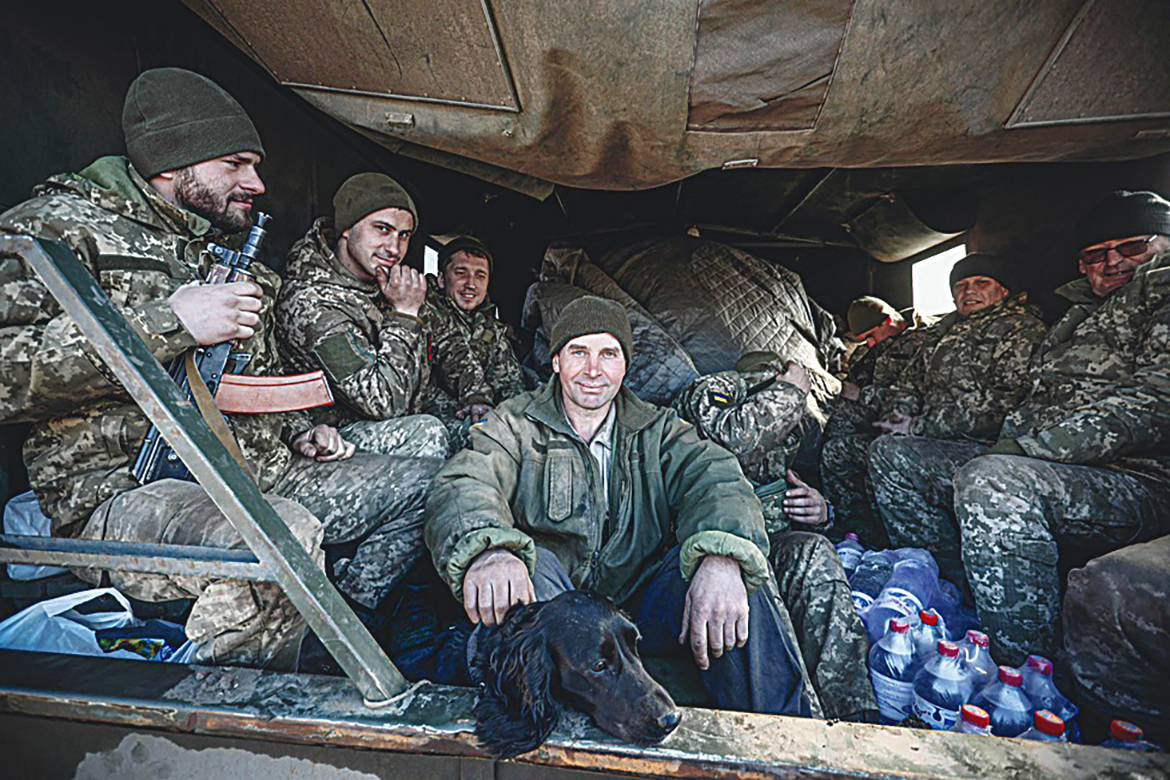PARIS: Mocked in some quarters for what sometimes seemed token efforts to support Ukraine's military in the face of the Russian threat, the West is starting to finally step up supplies of military equipment after the invasion. With Ukrainian forces putting up real resistance against the Russian advance, Western officials say there is a genuine interest in ensuring President Vladimir Putin pays the maximum price for the invasion. Germany in particular was criticized this month ahead of the invasion for only stumping up some 5,000 helmets to send to Ukraine, a gesture the mayor of Kyiv, former world boxing champion Vitali Klitschko, said had left him "speechless".
"What will they send us next? Pillows?" he asked the Bild daily. When diplomatic efforts were still alive, France and other Western states were wary of arms deliveries they feared could provoke Putin. Since Putin unleashed the attack on Ukraine on February 24, however, everything has changed. Germany said Saturday its army would transfer 1,000 anti-tank weapons and 500 Stinger-class surface-to-air missiles to Ukraine, a U-turn from its longstanding policy of banning weapon exports to conflict zones. France was also carrying out deliveries of defensive weapons to Kyiv, according to its military. Ukraine's embassy in Paris said it had in particular requested anti-aircraft hardware. And later Saturday, the French president's office announced Paris would be sending: fuel and more military equipment to Ukraine as well as applying tougher economic sanctions.
'Anti-war coalition'
Ukrainian President Volodymyr Zelensky said Saturday that "partners" were sending weapons to help Kyiv fight Russian troops, adding that he had spoken by phone with French leader Emmanuel Macron. "Weapons and equipment from our partners are on the way to Ukraine," he wrote on Twitter. "The anti-war coalition is working!" After the German announcement he tweeted: "Keep it up!" On Saturday, Belgium announced it was providing 2,000 machine guns and 3,800 tons of fuel to the Ukrainian army.
The Dutch defense ministry said it had delivered sniper rifles and helmets, while 200 Stinger anti-aircraft missiles would be on their way as "soon as possible".
The Czech Republic meanwhile is delivering 30,000 pistols, 7,000 assault rifles, 3,000 machine guns, several dozen sniper guns and about a million cartridges. The United States is providing Ukraine with $350 million in additional military equipment to fight off Russia's "brutal and unprovoked assault", Secretary of State Antony Blinken announced Saturday. Britain has said it is ready to provide Ukraine with additional military support, including lethal defensive weapons. But with military analysts saying Moscow has not even used half of the some 180,000 troops massed on the Ukrainian border in Russia and its ally Belarus, it remains unclear whether this sudden surge of help can make a difference.
'No time to lose'
The Russian defense ministry said Saturday the army had been given orders to broaden its offensive in Ukraine "from all directions" after Kyiv refused to hold talks in Belarus. The problem is that few "genuinely believed" in a Russian invasion on all of Ukrainian territory-"not even Zelensky", said General Vincent Desportes, a former director of France's prestigious Ecole de guerre, which trains top officers. Now, "everyone is doing what they can" but "no one has billions of extra armaments. All European armies are under-equipped", he told AFP.
"When you send 2,000 machine guns, you take them from your own stock. European armies are poor armies," Desportes said. Western diplomats at NATO headquarters in Brussels say that even in the face of the Russian military there is an interest in slowing down the advance and making the invasion as costly for Putin as possible. But after agreeing what to send to Ukraine there also remains the challenge of being able to get the equipment into the country and being able distribute it.
A French presidential official, who asked not to be named, said Paris was hoping a combination of Ukrainian resistance and sanctions against Russia could help force a ceasefire. Polish Prime Minister Mateusz Morawiecki lambasted the lack of Western help until now. Ukrainians, he said, "are also fighting for us. For our freedom, our sovereignty. So that we aren't next in line". "Russia wants to destroy our world as we know it. We have to act now. We have no time to lose," he added. - AFP










